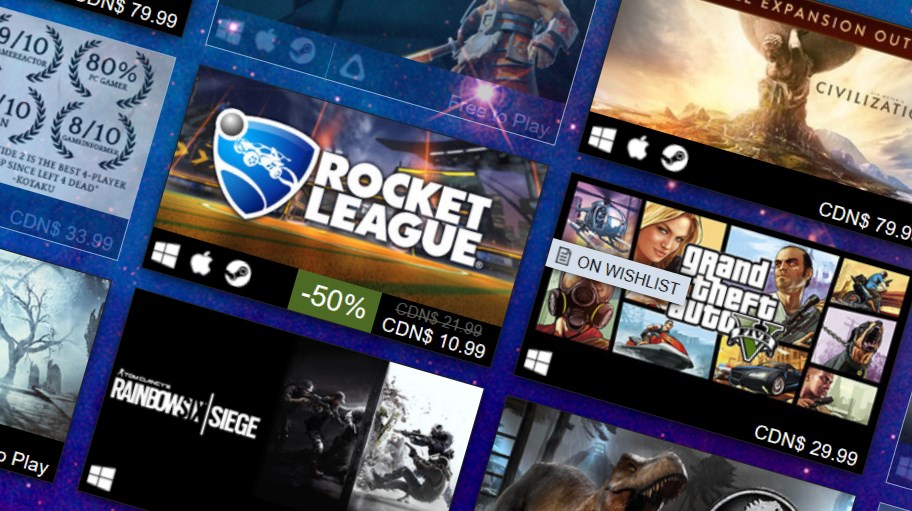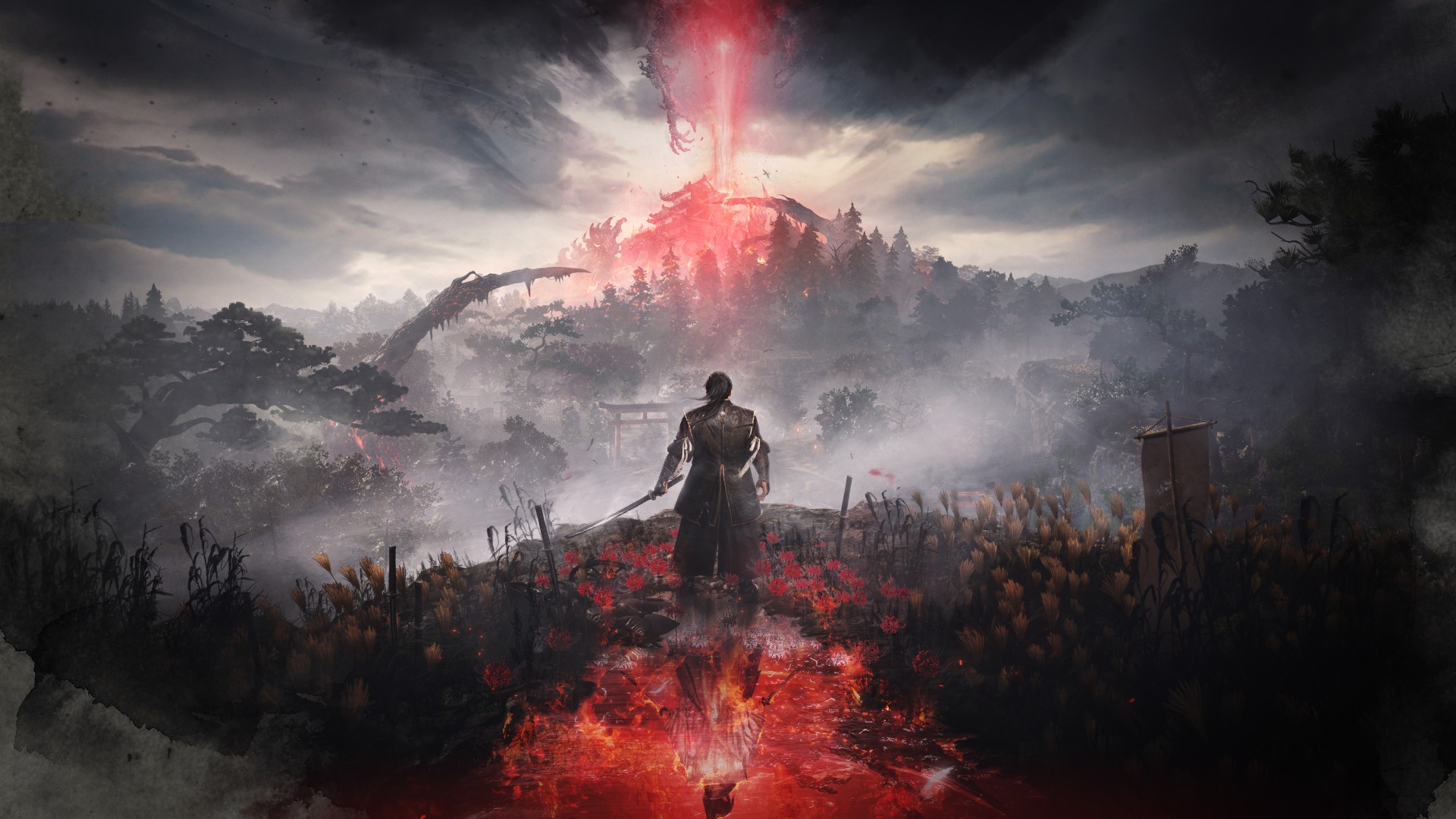Valve's new Steam revenue splits favour big-budget games, and indie devs aren't happy
If a game makes more than $10 million, developers get to keep a bigger cut of any extra earnings.
Keep up to date with the most important stories and the best deals, as picked by the PC Gamer team.
You are now subscribed
Your newsletter sign-up was successful
Want to add more newsletters?

Every Friday
GamesRadar+
Your weekly update on everything you could ever want to know about the games you already love, games we know you're going to love in the near future, and tales from the communities that surround them.

Every Thursday
GTA 6 O'clock
Our special GTA 6 newsletter, with breaking news, insider info, and rumor analysis from the award-winning GTA 6 O'clock experts.

Every Friday
Knowledge
From the creators of Edge: A weekly videogame industry newsletter with analysis from expert writers, guidance from professionals, and insight into what's on the horizon.

Every Thursday
The Setup
Hardware nerds unite, sign up to our free tech newsletter for a weekly digest of the hottest new tech, the latest gadgets on the test bench, and much more.

Every Wednesday
Switch 2 Spotlight
Sign up to our new Switch 2 newsletter, where we bring you the latest talking points on Nintendo's new console each week, bring you up to date on the news, and recommend what games to play.

Every Saturday
The Watchlist
Subscribe for a weekly digest of the movie and TV news that matters, direct to your inbox. From first-look trailers, interviews, reviews and explainers, we've got you covered.

Once a month
SFX
Get sneak previews, exclusive competitions and details of special events each month!
Valve has changed the way it shares revenue with developers on Steam—and it's good news for games that make a lot of money. Currently, revenue for Steam games is split 70/30 between the developer and Valve. But from now on, Valve will only take a 25% cut of any earnings over and above $10 million, and only 20% of earnings beyond $50 million. The first $10 million will still be split 70/30, and the change will impact any revenue earned after October 1 this year.
In a Steam post, Valve said the change will help "developers of big games", which will in turn benefit the entirety of Steam because of the "positive network effects" those developers generate. But some indie developers don't see it that way, and have branded the move a "slap in the face" to smaller companies that will never reach the $10 million threshold.
Wandersong developer Greg Lobanov encouraged players to stop buying indie games on Steam, and said the move would harm "niche, experimental games" like his.
In theory, they’re supposed to “earn” their 30% cut by promoting your game to a bigger audience. But games that aren’t already popular are also disfavored by the algorithm. So people at the bottom literally get less, and now, pay more.December 1, 2018
It’s obvious they did this to appease the biggest money interests... but it’s not good for the health of the gaming community or market. Niche, experimental games that broaden their audience like wandersong are impacted by these decisions.December 1, 2018
Brian Buckley, developer of roguelike Caves of Qud, said on Twitter that "tiny studios doing interesting things on razor-thin budgets" are now effectively "paying for the next Fallout 76", while Simon Roth, developer of space colony sim Maia, said the move sends the "wrong message" to indie developers.
Rami Ismail, of Nuclear Throne developer Vlambeer, said Valve was effectively subsidising large developers with the "broken dreams" of smaller companies, and questioned whether Steam was now "undesirable" for AAA developers.
Valve statement, paraphrased: "don't worry, big game productions, we'll happily subsidize your increased income with the broken dreams of aspiring devs that fell just short of making it because they have no leverage and we don't care.Just please don't launch your own store"December 1, 2018
However, some indie devs were far less critical. Kevin Simmons, a designer at West of Loathing developer Asymmetric, said on Twitter that Valve needed to hang onto the "AAA audience", and that losing them would cost all developers money because fewer people would be buying games on Steam.
Freya Holmér, co-founder of Budget Cuts developer Neat Corporation, agreed "to some extent" that the change was a "blatant middle finger to smaller developers", but argued that Valve taking less money from Steam games was still a "positive step".
Keep up to date with the most important stories and the best deals, as picked by the PC Gamer team.
But the alternative is that the rich get *even richer* off-Steam, not bringing more people to Steam at all, making it a less viable platform for everyone involved, including indies, as well as forcing players to another client that *don't allow indies at all*December 1, 2018
Although that being said, Valve could likely afford a flat 20% for everyone, and that would help indies as well as AAA studios. However, I think we should at least be happy revenue share is getting better for developers, even if it doesn't help everyone just yetDecember 1, 2018
If you're interested in the relationship between Valve and indie developers, I asked smaller studios whether it was worth cutting out Steam and selling direct to players earlier this year, which generated interesting discussion on, among other topics, revenue shares. Check it out here.
What do you think of Valve's new policy?
Samuel is a freelance journalist and editor who first wrote for PC Gamer nearly a decade ago. Since then he's had stints as a VR specialist, mouse reviewer, and previewer of promising indie games, and is now regularly writing about Fortnite. What he loves most is longer form, interview-led reporting, whether that's Ken Levine on the one phone call that saved his studio, Tim Schafer on a milkman joke that inspired Psychonauts' best level, or historians on what Anno 1800 gets wrong about colonialism. He's based in London.



